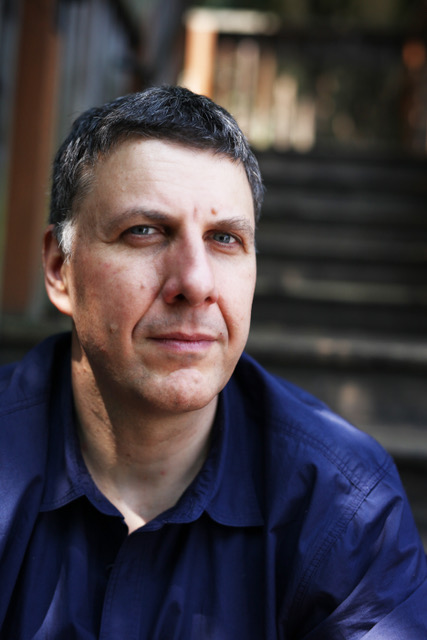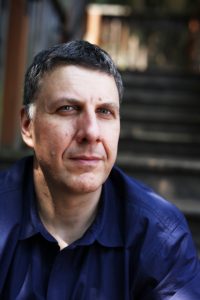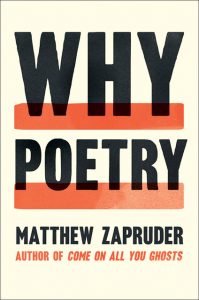
Award-winning poet, editor, and translator Matthew Zapruder reads selections of his poetry and from his forthcoming book, Why Poetry, “an incisive argument for poetry’s accessibility to all readers” on Tuesday, April 4, at 7 p.m. at the Ransom Center.

A reception and book signing follow the event, which is co-sponsored by The University of Texas at Austin’s New Writers Project.
Author of four poetry collections, Zapruder is also the poetry editor for the New York Times Magazine and editor-at-large for Wave Books.
In advance of his visit, Zapruder shared his thoughts about poetry, his favorite poets, and being a guitarist.
What inspired you to write Why Poetry?
Many years ago, I got interested in why exactly it was that people felt they didn’t understand poetry. I wanted to write a book that would directly address readers who have issues with poetry, in a conversational way. As I wrote, it became clear to me that a big reason people feel like they don’t understand poetry, besides the sorts of bad teaching that treat poems as if they are secret codes, is that readers don’t know why they are reading it, what poems are for. The book is, among other things, an argument for poetry as a genre, that is, a type of writing that does something no other forms of writing or uses of language can do.
What has allowed poetry to survive in this era of immediate satisfaction and short attention spans?
Poetry has always survived and always will survive as long as humans use language. We need it to try to express the inexpressible. I think the more we are inundated with language that feels commercial and degraded and shallow, the more we crave a use of language that is deep and mysterious and true. I’m a lot more worried about our survival as a nation and species than I am about the survival of poetry.
 When did you realize that writing poetry was something you would do as a career?
When did you realize that writing poetry was something you would do as a career?
I don’t know if “poetry” and “career” are two words that ever belong in the same sentence, but I did come to realize in my early twenties (during the time I was beginning a Ph.D. in Slavic Languages and Literatures at the University of California, Berkeley) that I wanted to devote my life to the practice of poetry, writing and reading it. It was a scary thought, because I had fallen in love with poetry, but I wasn’t really able to write it very well yet. So I had to throw myself into it and hope for the best. I did that by going to get an MFA in poetry at UMass Amherst, which was one of the best decisions I ever made, certainly the best decision I made in my twenties!
Has your job as the poetry editor for the New York Times Magazine affected how you write or how you look at your own writing?
I wouldn’t say so, not yet anyway. It’s been interesting to read a lot of contemporary poetry: for the column, I am selecting poems from recently published or forthcoming books only, so I read a LOT, almost everything that is being published, by small and larger presses alike. It has given me a much better feel for where the art form is right now. I am sure some of the things I am reading now will have an influence on my poems going forward, as does everything I read.
Who are some of your favorite modern poets?
Wow. That is a big question. I guess the first person who comes to mind is my teacher and mentor, the late James Tate, whose archive resides at the Ransom Center as it happens. He was one of the great poets of the past 50 years, a singular artist with a complete devotion to poetry. At various times he explored various avenues, starting with a kind of imaginative, dreamy narrative style, moving into work that was more densely imagistic and surrealistic, and then eventually ending up with poems that are highly narrative, close to short fiction. At every stage in his writing life he was brilliant. He was a true poet and I was lucky to study with him, to know him, to read him.
You are also a rock musician—a guitarist for The Figments. Is music for you an extension of poetry, or a separate art?
Absolutely a separate art. I am not really a songwriter. Because I play lead guitar, my job really is to flesh out songs by others, really mostly my brilliant friend Thane Thomsen, one of the hidden geniuses of contemporary songwriting. I really like the process of working with, and under the direction of, another artist I respect. Writing poetry can feel a little lonely, and it’s hard to make all the decisions, so it’s a relief to be told what to do, and to be in a band, to hang out with other people making music.